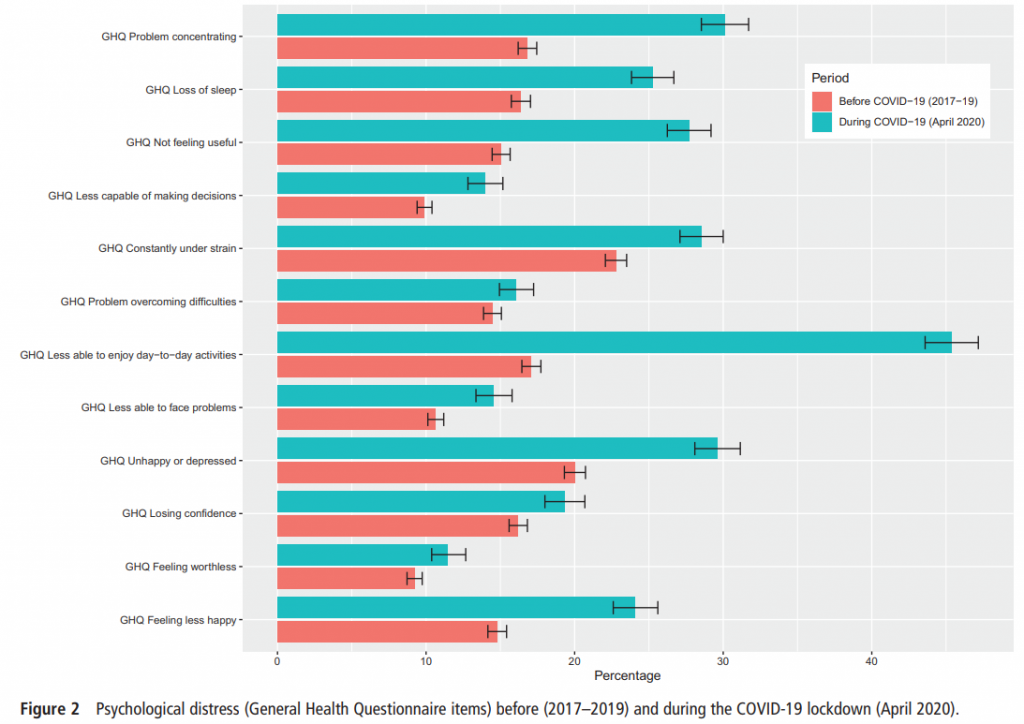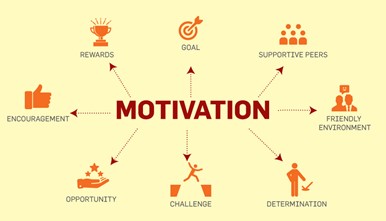Understanding Post-Pandemic Workforce Motivation
Understanding the impact of the pandemic on employee motivation is especially important as lockdown restrictions gradually ease in the UK. Robert Isaac, Director of People Development 4i Solutions, MBA, and Fitness Coach considers the effects of post-pandemic motivation on the UK workforce.
Like many others during the lockdown, much of my work was delivered in the virtual environment, e.g., coaching and mentoring sessions, management development programmes, and other workshops. However, talking to colleagues in other organisations they tell me that they have noticed the tapering off in engagement levels. For example, they observed that delegates who were previously keen to participate in virtual meetings with their cameras on started attending sessions with them turned off. This sparked my interest in finding out whether there was something else happening other than those people not wanting their colleagues to see inside their homes!
After some time talking to clients and colleagues about the increasing “cameras off” experience. It soon became apparent that the uncertainties generated by the pandemic and its handling were impacting negatively on motivation. In my experience as People Development Director at 4i Solutions, and Fitness Instructor it is vitally important to know and understand how to motivate individuals and teams if they are to perform at their best.
Over the coming weeks, my colleague Greg Falvey, Associate Director at 4i Solutions, and I will explore motivation and its effects in a series of four blogs. Understanding Post-Pandemic Workforce Motivation is first in the series.
So, what is Motivation?
In everyday usage, the term “motivation” is frequently used to describe why a person does something. Motivation involves the biological, emotional, social, and cognitive forces that activate behaviour. It is the process that initiates, guides, and maintains goal-oriented behaviours. By gaining a better understanding of crucial motivation triggers, leaders can improve business performance, both within their organisations and in collaborative environments that they participate in.
The Impact on Motivation During Lockdown
Analysing a recent study by the Social and Public Health Sciences Unit, University of Glasgow, on the impact of lockdown in the UK. The report found strong evidence that psychological distress has substantially increased in the UK during the COVID-19 pandemic.
The following table highlights psychological distress before and during COVID-19 lockdown:

Further evidence that UK workers found staying motivated during the pandemic challenging is published in a study carried out by YouGov. Over 1000 employees revealed that the performance of younger workers (under 35 years old) is twice as likely to be impacted by a lack of motivation than that of 45-54-years olds (22%) and significantly more likely to be affected by a lack of motivation than the average for all age groups (28%).
Unintended Effects on the Workforce
As well as the negative impact on individual productivity, a demotivated employee can also affect the overall team, creating a hostile atmosphere. Additionally, other employees or team members can become stressed when trying to pick up the slack. Over time, this can lead to further demotivation in the team. For example, colleagues that were required to work throughout the pandemic while some of their peers, through no fault of their own, were furloughed may feel overworked and under-appreciated.
Equally, furloughed colleagues may experience a loss of confidence and anxiety, which could negatively impact their motivation levels. Currently, there is limited data on the links between mental and financial health regarding the pandemic and lockdown. However, we anticipate the two factors are inextricably linked.
As society and business recovers from the pandemic, drivers in terms of both people and perceived needs may create challenging or unwanted pressures, which in turn may have unintended effects on individuals and teams, and the collaborative space for us all to perform.
According to a recent CIPD report, Embedding New Ways of Working, two-thirds of employees working from home are either more or as productive as in the workplace. However, they have also identified the need to provide mental health support.
The shift to home working over the pandemic has been a positive experience for most employers, who report people’s improved work-life balance (cited by 61% of employers), enhanced employee collaboration (43%) and improved focus (38%).
Overall, 28% of employers report that the increase in home working has boosted productivity, while 37% say it has not impacted productivity levels, with 28% of employers reporting a decrease. However, the research also highlights the challenges of managing home workers with employers highlighting reduced staff mental wellbeing (47%), problems with staff interaction/co-operation (36%) and difficulties with line managing home workers (33%) and monitoring their performance (28%).
The study shows the benefits significantly outweigh the challenges and that many employers are planning to introduce or expand the use of home working once the crisis is over.
The Leadership Role
The personal and professional demands on today’s leaders are unprecedented, as they are required to respond to rapid change and challenges in the business environment (e.g., the pandemic and Brexit). A blueprint or route map to guide us through this unique set of circumstances does not exist. To succeed, leaders must develop a clear understanding of the purpose and mission of their organisation, partnership, service, or programme, including the leadership skills and behaviours required to deliver the business strategy. Without these critical elements, focus can be lost, and decisions become seemingly haphazard, possibly resulting in a lack of engagement and motivation by the workforce when their support is most needed.
Leaders, HR practitioners and Project Sponsors would do well to review their current people development strategy and consider the effectiveness of the following motivational triggers.

In conclusion, by gaining a better understanding of crucial motivation triggers and moving towards society reopening, we can expect to see an increase in motivation levels that will benefit our psychological and physical wellbeing. However, some sectors will take longer to bounce back. Changes in the labour market will demand leaders place greater emphasis on training and developing their workforce. 4i Solutions is well-positioned as a market leader in People Development to support leaders, individuals, and teams to be future-ready!
Further reading: Are You Neuro Nimble? considers the neurological affects of motivation.
To find out more about the People Development services we offer, or to chat to Robert and Greg and how they can help you and your organisation contact us.







